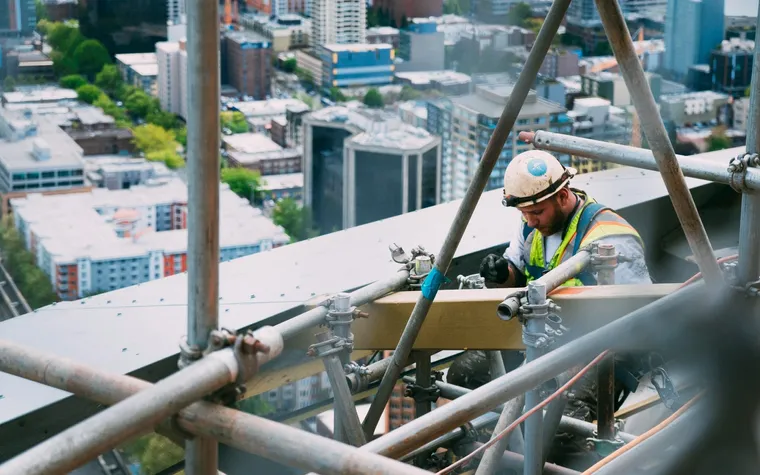Drywall installer jobs are essential in the construction industry, providing smooth, durable walls and ceilings for residential, commercial, and industrial buildings. These professionals measure, cut, and install drywall panels, ensuring a flawless finish for painting or wallpapering. With the growing demand for housing and renovations, drywall installers play a crucial role in modern construction projects.
A career as a drywall installer offers steady employment, competitive wages, and opportunities for advancement. Skilled workers can become supervisors, start their own businesses, or specialize in decorative finishes. The job requires physical endurance, precision, and knowledge of tools and materials, making it a hands-on profession with long-term stability in the construction field.
What Does a Drywall Installer Do?
Drywall installers, also known as drywall hangers, are responsible for measuring, cutting, and fastening drywall sheets to walls and ceilings. They work in homes, offices, and commercial buildings, ensuring surfaces are smooth and ready for painting or finishing. Tasks include sealing joints, applying tape, and using joint compound to create a seamless look.
These professionals also handle insulation, soundproofing, and fire-resistant drywall installation when required. Some specialize in ceiling tile installation or custom drywall designs. Drywall installers must be skilled with tools like utility knives, drywall saws, and taping knives to achieve a high-quality finish.
Skills Required for Drywall Installer Jobs
To succeed as a drywall installer, professionals must develop the following skills:
- Precision and Attention to Detail – Accurate measurements and cuts ensure drywall fits perfectly.
- Physical Strength and Stamina – The job requires lifting heavy drywall sheets and working for extended periods.
- Hand-Eye Coordination – Proper handling of tools is essential for seamless installation.
- Knowledge of Building Codes – Compliance with safety regulations and construction guidelines is necessary.
- Problem-Solving Abilities – Unexpected issues may arise, such as uneven walls or tricky layouts.
Additionally, drywall installers must have good teamwork skills, as they often collaborate with other construction professionals, including electricians and painters.
How to Become a Drywall Installer
There are several paths to becoming a drywall installer:
- On-the-Job Training – Many drywall installers start as helpers and gain experience while working under skilled professionals.
- Apprenticeship Programs – Some organizations offer paid apprenticeships that combine hands-on training with classroom instruction.
- Technical School Programs – Vocational schools provide courses in construction trades, including drywall installation.
- Certification – While not always required, certifications can boost job prospects and demonstrate expertise.
With experience, drywall installers can advance to supervisory roles, become independent contractors, or specialize in high-end custom finishes.
Job Outlook and Salary for Drywall Installers
The demand for drywall installers remains steady, driven by new construction, renovations, and home improvements. According to the U.S. Bureau of Labor Statistics, employment in the drywall installation field is expected to grow in the coming years, providing ample job opportunities.
The average salary for drywall installers varies based on experience, location, and employer. Entry-level workers earn around $30,000 per year, while experienced installers can make over $50,000 annually. Self-employed contractors may earn even more, depending on project size and specialization.
Conclusion
Drywall installer jobs offer a rewarding career path for those interested in construction. With the right skills, training, and experience, professionals in this field can secure stable employment and advance to higher-paying roles. As the demand for quality construction continues to grow, drywall installation remains a valuable trade with long-term career potential.

